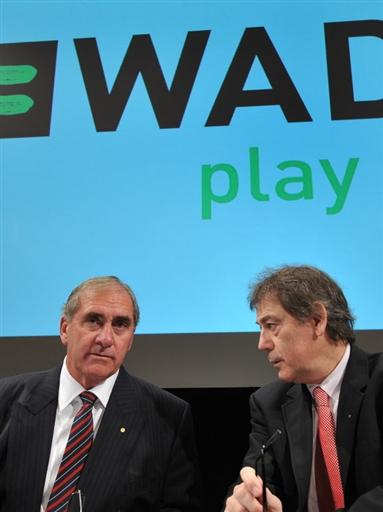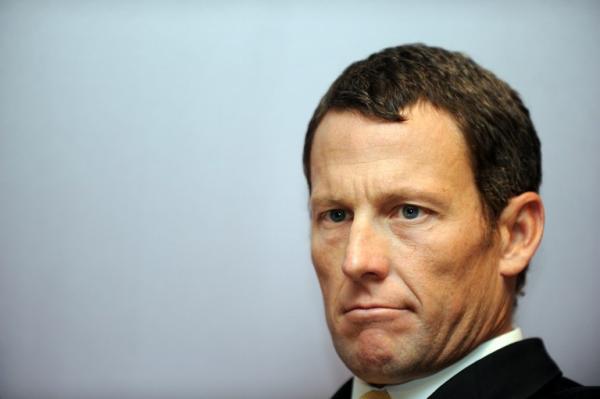Howman on whether US Postal could happen again
WADA director-general reacts to USADA report


While WADA and the UCI closely study the USADA's extensive report into Lance Armstrong and doping at the US Postal and Discovery teams, the question has arisen as to whether such a systematic doping regime could function in the current climate.
Armstrong lawyer attacks pending USADA report
Six former Armstrong USPS teammates receive bans from USADA
UCI examining USADA's evidence on Armstrong
USADA: Armstrong created a doping culture at US Postal
Walsh: USADA decision "convincing and comprehensive"
Verbruggen on Armstrong: We did not hide anything, ever
USA Cycling to enforce USADA's suspensions of former Armstrong teammates
According to USADA’s evidence, the US Postal team ran “the most sophisticated, professionalized and successful doping program that sport has ever seen”. Testimony from several riders illustrate that tactics of bullying and coercion were employed to ensure control and lure riders into the doping practices that helped Armstrong win seven straight Tours and dominate the face of cycling.
According to the evidence amassed by USADA, it was a global operation, with funds used to facilitate the purchase and distribution of doping products.
David Howman, Director General of the World Anti-Doping Agency, is currently studying USADA’s report but called it “a very thorough and reasoned decision with luminous amounts of evidential material. I think USADA have conducted not only a co-compliant process but a very thorough and professional process,” he told Cyclingnews on Thursday.
“In every sport there’s the ability for people to take shortcuts to succeed,” Howman said when Cyclingnews asked if a US Postal equivalent could exist within the current framework of cycling.
“I would be hopeful that it couldn’t because of the new methods and ideas we’ve put into the system in recent times, which includes gathering evidence from police, and customs and so on. So that if even these things were happening and be able to engage others to find out about it. That’s what I would hope.”
“But I’m also somewhat of a cynic and know that people get away with things right underneath your nose or will try and do that. So I wouldn’t be dumb enough to say it’s not happening, but I would say that there’s a better chance of finding it earlier in the campaign. You would think that with things in place now, a whiff of that would come to your notice, whether it’s through good investigative journalism, the police, or information and because of the harmonious efforts we make worldwide now you can feed that to people who can make use of it. I don’t it would exist for the extent of time that this one did.”
Get The Leadout Newsletter
The latest race content, interviews, features, reviews and expert buying guides, direct to your inbox!
The US Postal team formed in 1997, competing in their debut Tour a year later and within another twelve months Lance Armstrong had won his first Tour. The American still denies doping and despite refusing to fight USADA charges has seen his seven Tour titles stripped.
How the US Postal team, and the majority of the peloton in that era were able to navigate around slack anti-doping laws at the time is still under debate. In his recent autobiography, former Postal rider Tyler Hamitlon explained how the team employed doctors who were better qualified and resourced than those tasked with running tests. WADA only came into being after the Festina scandal of 1998, with their code only receiving ratification by the UCI in 2004. This gave way to universal sport laws, that helped to unify sporting federations and nations.
Again Howman would not talk about the specifics of the USADA report, for example how the US anti-doping agency were able to come to the conclusion that Armstrong likely doped during the 2009 and 2010 Tours, but he also stressed that the UCI’s passport was still a decent tool in the development against doping.
“The code and the way in which WADA operated didn’t start until the Olympic Games in Athens in 2004. Secondly WADA only came into existence because of a cycling saga in 1998. So there was a culture that was existing in cycling in the 90s that had to be addressed. It took a few years for that to come into being. At the time we had in the anti-doping community almost a situation of chaos where every sport had different rules. What was going on in those times was hardly better than the wild west,” he told Cyclingnews.
Daniel Benson was the Editor in Chief at Cyclingnews.com between 2008 and 2022. Based in the UK, he joined the Cyclingnews team in 2008 as the site's first UK-based Managing Editor. In that time, he reported on over a dozen editions of the Tour de France, several World Championships, the Tour Down Under, Spring Classics, and the London 2012 Olympic Games. With the help of the excellent editorial team, he ran the coverage on Cyclingnews and has interviewed leading figures in the sport including UCI Presidents and Tour de France winners.
